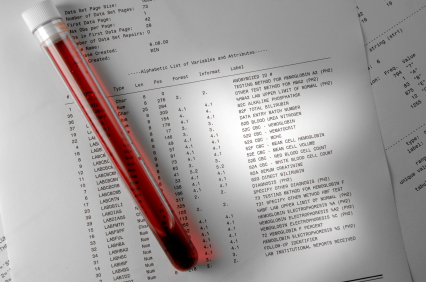Antioxidants May Be Deficient in Patients with Bipolar Disorder, NAC May Help
In a poster at the 9th International Conference on Bipolar Disorder (ICBD) held in Pittsburgh in 2011, Guy Goodwin and colleagues reported that relative to controls, blood from patients with bipolar disorder contained more total glutathione, a potent antioxidant, and a higher ratio of oxidized to reduced glutathione. Measurements of blood glutathione could eventually serve as a biomarker, suggesting when a diagnosis of bipolar disorder is likely.
Editor’s note: Glutathione is one of the major antioxidants in humans. Oxidized glutathione is a less active form, so the higher levels of oxidized glutathione compared to reduced glutathione in patients with bipolar disorder suggests they may have a relative deficiency of the active form. These data are consistent with reports that patients in manic and depressive phases of bipolar disorder have increased oxidative stress and free radicals that impair cellular functioning.
Together, these results highlight the potential utility of treatments that increase antioxidant activity. One option is N-acetylcysteine (NAC), which the body converts into glutathione. As previously noted in the BNN, Michael Berk reported in Biological Psychiatry in 2008 that NAC (1000 mg twice a day) appears to exert greater antidepressant effects over a period of 24 weeks than placebo when added into previously ineffective regimens in patients with bipolar disorder.
In another poster at the conference, Magalhaes and colleagues reported on NAC treatment for a subgroup of the bipolar patients in the study by Berk who were in a major depressive episode at the time of the study. They found that NAC had highly significant acute antidepressant effects of large magnitude in this subgroup of patients.
The glutathione data by Goodwin et al. provide a further rationale for consideration of the use of NAC in bipolar disorder, particularly in the acute and longer-term treatment of the depressive phases. As we reported in BNN Issue 1 from 2010, NAC also exerts positive effects in many illnesses that commonly occur comorbidly with bipolar disorder. These include cocaine and heroin addiction, gambling addiction, obsessive compulsive disorder (as an adjunct to selective serotonin reuptake inhibitors (SSRIs)), and trichotillomania (compulsive hair-pulling).
Comments
2 Responses to “Antioxidants May Be Deficient in Patients with Bipolar Disorder, NAC May Help”
Leave a Reply



You have the wrong link to the Berk article (you link to the schizophrenia one). The correct link is http://www.biologicalpsychiatryjournal.com/article/S0006-3223(08)00500-3/abstract
Thank you-fixed!